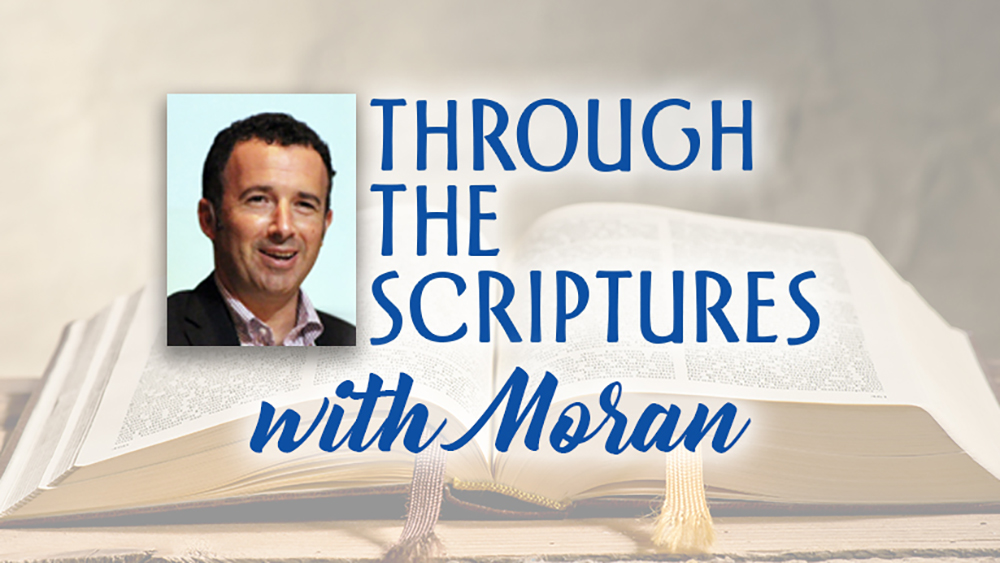
Parashat Ki Tisa (When You Lift Up)
Shemot (Exodus) 30:11–34:35
Haftarah: 1 Kings 18:1–39
As I was reading our portions for this week, I was thinking of a very famous Israeli song by Arik Einstein, in which the chorus says, “Sitting on the fence, one leg here and one leg there…”. I thought those words accurately describe our walk with God — one foot in the world and the other in the kingdom. Or, in other words, we straddle the line between our flesh and the Spirit. Often, there's a tension between what we want and what God desires for us.
In this week's parasha, we read of one of the most well-known, yet tragic accounts in the history of the people of Israel. It begins with Moses on Mt. Sinai, receiving the stone tablets, which were written with God’s finger. During that time, the people grew impatient because they thought Moses was delayed coming down the mountain. They gathered against Aaron and told him to make them a god that would walk before them since they did not know what happened to Moses.
Aaron feared the people more than he feared God. This fear caused him to surrender to the people, and therefore, he collected all the golden earrings and turned them into a molten calf. He then blasphemously declared,
This is your god, Israel, who brought you up from the land of Egypt!
Exodus 32:4
The blasphemy against the one and only true God did not stop there; Aaron built an altar and said to the people that, “tomorrow will be a festival to the lord”. The next day the people rose up to offer burnt offerings, to bring peace offerings and they sat down to eat, drink and "to make merry”. Most Bible translations translate the word “לְצַחֵק” (letzachek) as “to make merry”, but a more accurate meaning would be the sound resulting from a licentious kind of debauchery. In other words, the children of Israel were engaging in a form of lewd idol worship.
The people’s impatience was rooted in selfishness, which caused them to take matters in their own hands. And before we judge them, let us take a deep look at ourselves and how often we don’t want to wait upon the Lord, and we take matters into our own hands. Reality is that the results are the same as those of the children of Israel i.e., we make for ourselves a different “god” that we trust in and follow.
In our Haftara portion, there is a very interesting verse as Elijah called on Israel to stop “sitting on the fence” and make a choice between which god they want to follow — Elohim or Baal:
Then Elijah approached all the people and said, “How long are you going to pass over with the two choices? If the LORD is God, follow Him; but if Baal, follow him.” But the people did not answer him so much as a word.
1 Kings 18:21
While this story from 1Kings 18 is also well-known, I think we miss its main point when we focus just on the confrontation which took place between Elijah, King Ahab and the false prophets of Baal. Naturally, we will be drawn to the incredible part of the account where fire comes down to burn everything to ashes.[i] However, I believe that the most significant part of the story is that, once again, Israel was quick to follow false gods instead of the one and only true God — the God of Israel!
The reality was and still is, that we have two choices in life: worship idols which are dead and powerless, such as the golden calf and Baal, or worship and follow the one and only true, living God — the God of Abraham, Isaac, and Jacob.
We need to make a choice on which side of the “fence” we want to stand. If we choose His kingdom, it means we reject the things that are not of His kingdom. It means we will have to surrender our all to Him, and submit to His ways and precepts.
In closing, I want to leave you with one final encouraging thought. In our Parasha we read:
Then God said, “Behold, I am going to make a covenant. Before all your people I will perform miracles which have not been produced in all the earth nor among any of the nations; and all the people among whom you live will see the working of the LORD, for it is a fearful thing that I am going to perform with you.”
Exodus 34:10
In our Haftarah, we see the fulfillment of that great promise:
Then the fire of the LORD fell and consumed the burnt offering and the wood, and the stones and the dust; and it licked up the water that was in the trench. When all the people saw this, they fell on their faces; and they said, “The LORD, He is God; the LORD, He is God!”
1 Kings 18:38–39
You can serve the living God or dead idols; the choice is yours to make!
Shabbat Shalom,
Moran
[i] There's an interesting connection of fire between the Parasha to the Haftarah where we read what Moses did to the golden calf : “Then he took the calf which they had made and completely burned it with fire, and ground it to powder, and scattered it over the surface of the water and made the sons of Israel drink it.” Exodus 32:20. In both accounts, fire purifies the sin of idol worship, and at the same time, is an act of judgment on the idol itself.
Check out previous blogs on this parashah!
Share this Post
